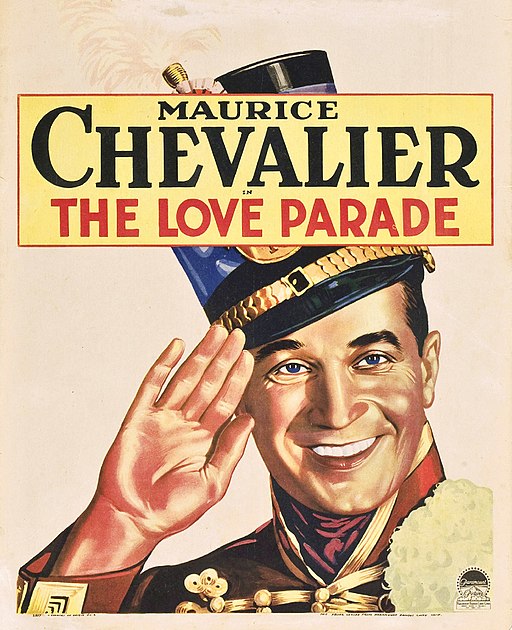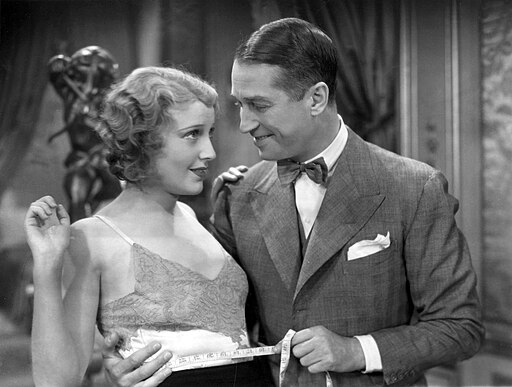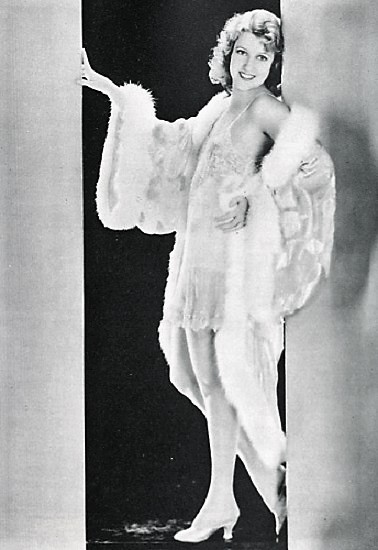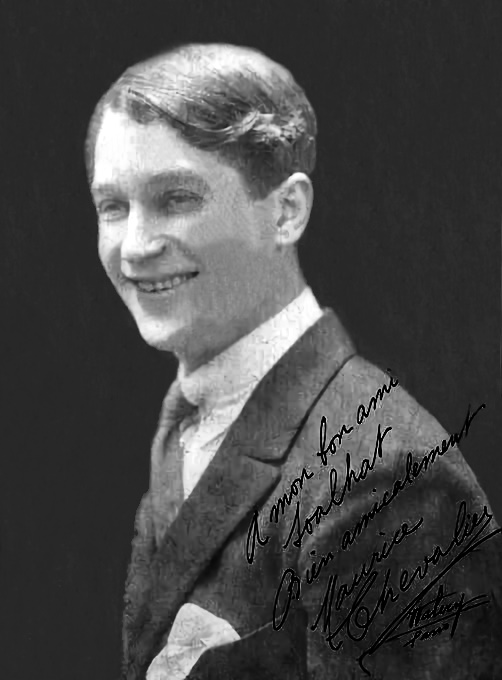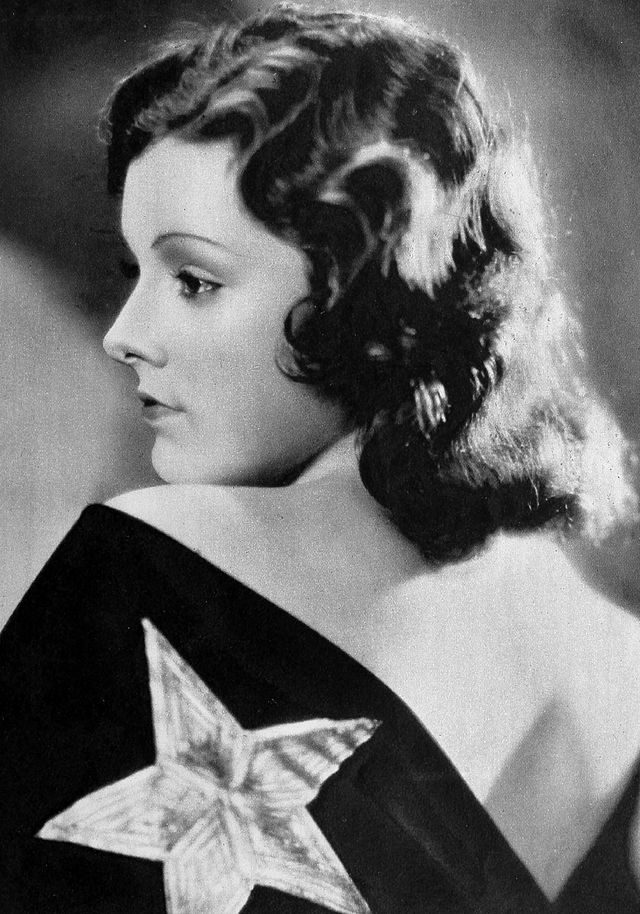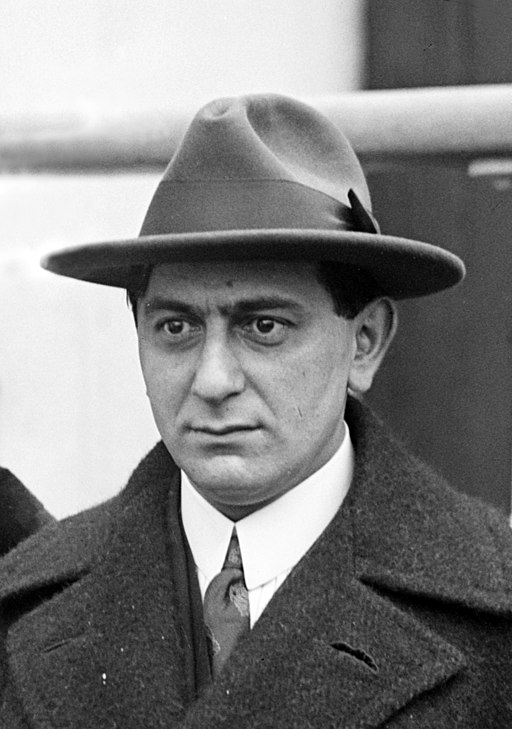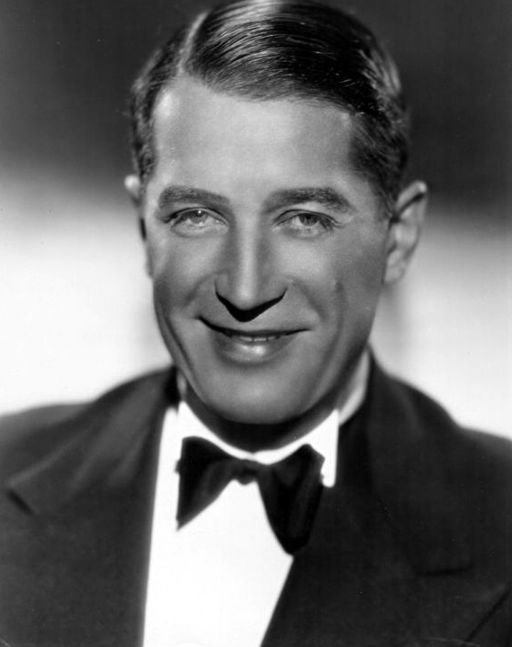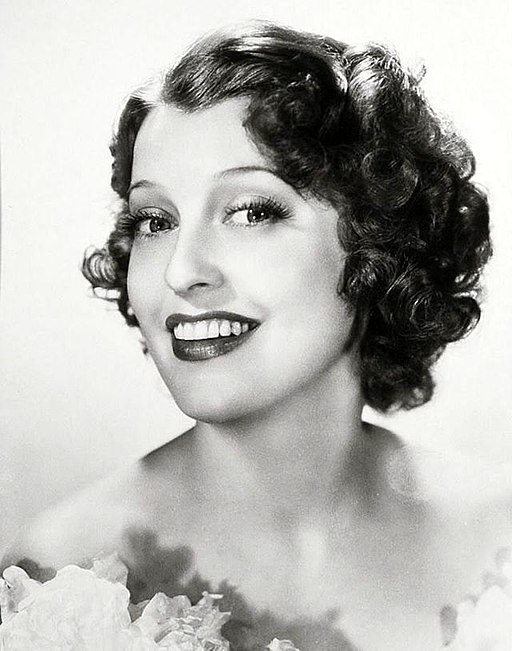The Love Parade - 1929
back| Released by | Paramount Pictures |
| Director | Ernst Lubitsch |
| Producer | Ernst Lubitsch |
| Script | Ernest Vajda, Guy Bolton. Based on the play 'The Prince Consort' by Jules Chancel and Leon Xanrof |
| Cinematography | Victor Milner |
| Music by | Victor Schertzinger, and Werner R. Heymann |
| Running time | 107 minutes |
| Film budget | $ 650,000,- |
| Box office sales | $ 2.000,000 ,- |
| Main cast | Maurice Chevalier - Jeanette MacDonald - Lupino Lane - Lilian Roth |
The Love Parade
A pioneering musical comedy that showcases sound cinema's potential
"The Love Parade" was one of the earliest sound films that successfully integrated music into its narrative. It was nominated for six Academy Awards, including Best Picture and Best Director.
The film was particularly noted for its sophisticated use of sound, a novelty in the era of early talkies. Ernst Lubitsch's direction and the performances of Maurice Chevalier and Jeanette MacDonald were widely praised, setting a high standard for musical films in the following years.
Related
The Love Parade – 1929
Summary and Analysis
"The Love Parade" is a landmark 1929 musical comedy film directed by Ernst Lubitsch, known for its innovative use of sound and its contribution to the musical genre in the early days of talkies. Here's a detailed summary and analysis:
Summary
The film opens in Paris, where Count Alfred Renard (Maurice Chevalier), a charming and womanizing military attaché, is summoned back to his fictional homeland of Sylvania after yet another romantic scandal. In Sylvania, he meets Queen Louise (Jeanette MacDonald), a young and beautiful ruler. The Queen, impressed by Alfred's charisma, appoints him as her consort.
The narrative unfolds as a romantic comedy, with Alfred struggling to adjust to his role as a consort with no real power. The film humorously explores gender roles and marital dynamics, as Alfred finds it challenging to play second fiddle to a female monarch. Meanwhile, Queen Louise grapples with her feelings for Alfred and her responsibilities as a ruler.
The film features several musical numbers, skillfully integrated into the narrative. Songs like "Dream Lover" and "Anything to Please the Queen" are not only entertaining but also serve to advance the plot and develop characters.
Scenes between Alfred and Louise brim with romantic tension and witty dialogue, showcasing Lubitsch’s trademark "touch" in blending humor with romance.
Analysis
Ernst Lubitsch's direction is a highlight of the film. He uses sound innovatively, not just for dialogue but to enhance the comedic and romantic elements of the story. Lubitsch's European sensibility is evident in the film’s sophisticated humor and subtle sexual innuendos, a novelty for Hollywood at the time.
Maurice Chevalier's performance is charismatic, bringing a blend of humor and suaveness to his role. Jeanette MacDonald, in her film debut, displays a mix of regality and vulnerability, making her character both commanding and endearing.
"The Love Parade" explores themes of love, power dynamics in relationships, and the clash between personal desires and public duties. The film portrays a reversal of traditional gender roles, with the male lead playing a secondary role to a powerful female character.
The integration of music is seamless and pioneering for its time. The songs are not just performances but integral parts of the narrative, moving the story forward and revealing character traits.
The film was a critical and commercial success, setting a precedent for future musicals. It demonstrated how music and sound could be effectively used in cinema, influencing the genre for decades.
"The Love Parade" received multiple Academy Award nominations, including Best Picture, and is often cited as one of the greatest musical films of the early sound era. Its blend of wit, romance, and musical elements, along with Lubitsch's sophisticated direction, make it a classic of the genre.
Duet between Maurice Chevalier and Jeanette MacDonald:
Full Cast of ‘The Love Parade’:
- Maurice Chevalier as Count Alfred Renard
- Jeanette MacDonald as Queen Louise
- Lupino Lane as Jacques
- Lillian Roth as Lulu
- Eugene Pallette as Minister of War
- E. H. Calvert as Master of Ceremonies
- Edgar Norton as Lord Chamberlain
- Edmund Breese as Prime Minister
- Lionel Belmore as Sylvanian Ambassador
- Margaret Quimby as Lady-in-Waiting
- Virginia Bruce as Lady-in-Waiting (uncredited)
- Yola d'Avril as Paulette (uncredited)
- Ben Turpin as Cross-Eyed Lackey (uncredited)
Analysis of the Direction of Ernst Lubitsch:
Ernst Lubitsch, often hailed as a master of cinema, was known for his distinctive style and approach to filmmaking, which came to be known as the "Lubitsch Touch." This term has been used to describe a unique blend of subtlety, sophistication, and wit in his direction.
Subtlety and Implication
Lubitsch was a master of subtlety and implication. He had an unparalleled ability to suggest more than what was shown on screen, allowing the audience's imagination to fill in the gaps. This technique was particularly effective in handling themes and subjects that were considered risqué for the time, as it enabled him to bypass censorship while still engaging the audience in a sophisticated dialogue.
Elegance and Sophistication
His films often exuded a European elegance and sophistication, marked by clever dialogue, polished settings, and refined characters. Even when dealing with potentially lurid topics, Lubitsch approached them with such finesse and class that they became palatable and charming.
Humor and Irony
A hallmark of Lubitsch's direction was his use of humor, often laced with irony. He had a knack for comedic timing and used visual gags, witty dialogue, and situational comedy to great effect. This humor was never overbearing; instead, it was integrated seamlessly into the narrative, enhancing the storytelling.
Character Development
Lubitsch's characters were complex and multi-dimensional. He had a gift for revealing the depth of his characters through subtle gestures, expressions, and interactions. His characters often found themselves in morally ambiguous situations, providing a rich ground for exploring human nature and relationships.
Innovative Use of Music and Sound
In musicals like "The Love Parade," Lubitsch demonstrated an innovative use of sound and music. He integrated songs into the narrative, using them to advance the plot and develop characters, rather than as mere interludes.
Cinematic Techniques
Lubitsch's direction was marked by the inventive use of cinematic techniques. He employed creative camera angles, editing, and set design to enhance the narrative and emotional impact of his films. His ability to convey complex ideas through visual storytelling was ahead of his time.
Influence and Legacy
Lubitsch's influence on filmmaking is profound. He set new standards for film genres, particularly comedies and musicals. Directors who followed him have often tried to emulate his style, but the "Lubitsch Touch" remains unique to his personal vision and artistry.
Breakthrough for Jeanette MacDonald:
Jeanette MacDonald's role as Queen Louise in "The Love Parade" marked her film debut and established her as a major star in the musical film genre. Her performance can be analyzed from several perspectives:
Strong Female Lead
MacDonald's character, Queen Louise, is a significant departure from typical female roles of the era. As a reigning monarch, she exudes authority and confidence, challenging the conventional portrayal of women in cinema at the time. Her role represents a progressive image of female empowerment, showcasing a woman in a position of power who is both respected and independent.
Vocal Performance
One of the most striking aspects of MacDonald's performance is her singing. With a background in opera and musical theatre, she brought a remarkable vocal talent to the screen. Her songs in the film, particularly "Dream Lover," not only display her vocal range but also add depth to her character, revealing her inner desires and emotions.
Romantic Chemistry
MacDonald's on-screen chemistry with Maurice Chevalier is a highlight of the film. Her portrayal of a queen falling in love with Count Alfred Renard (Chevalier) is both convincing and nuanced. She skillfully balances the dignified aspect of her royal character with the vulnerability and warmth of someone experiencing love, providing a multi-dimensional portrayal of a romantic lead.
Comic Timing and Dramatic Flair
MacDonald demonstrates a flair for comedy, delivering her lines with a perfect blend of wit and timing. Her ability to switch between comedic and dramatic moments adds layers to her performance, making her character both relatable and engaging.
Representation of Themes
Through her role, MacDonald explores themes of love, power, and the conflict between duty and personal desire. Queen Louise's struggles to balance her feelings for Alfred with her royal responsibilities reflect the film's exploration of gender roles, power dynamics in relationships, and the societal expectations of women in positions of authority.
Legacy and Impact
MacDonald's performance in "The Love Parade" set the tone for her subsequent career. She became known for her roles in musicals and her ability to portray strong, independent women with grace and charm. Her role in this film helped pave the way for more complex and varied female characters in Hollywood.
Analysis of the Performance of Maurice Chevalier:
Maurice Chevalier's performance as Count Alfred Renard in "The Love Parade" is a pivotal element of the film's success and charm. His role and performance can be analyzed on several key aspects:
Charismatic Screen Presence
Chevalier's screen presence in "The Love Parade" is undeniably magnetic. He brings a natural charm and charisma to the role of Count Alfred Renard, a suave and sophisticated character. His confident demeanor and charismatic smile make him instantly likable and engaging to the audience.
Mastery of Musical Performance
As a renowned singer, Chevalier's ability to perform musical numbers is a standout aspect of his role. His singing is not just a display of vocal talent but also a means of character development and storytelling. Songs like "Dream Lover" and "March of the Grenadiers" are integral to the film, and Chevalier's performances in these numbers are both entertaining and expressive, revealing different facets of his character.
Comic Timing and Wit
Chevalier's comic timing and wit are central to his portrayal of Count Alfred. He delivers lines with a perfect blend of humor and charm, making even the simplest dialogues memorable. His ability to convey humor through facial expressions, body language, and impeccable delivery adds a layer of sophistication to the comedy in the film.
Romantic Lead
As the romantic lead opposite Jeanette MacDonald's Queen Louise, Chevalier portrays a complex balance of being enamored and yet humorously struggling with his role as the consort. His interactions with MacDonald are filled with a mix of romantic tension and comedic relief, showcasing his ability to play a romantic lead who is both endearing and amusing.
Reflection of Social Norms and Gender Roles
In his role as Count Alfred, Chevalier reflects the social norms and gender roles of the era, albeit with a twist. The film inverts traditional gender roles, with Alfred being in a less dominant position compared to Queen Louise. Chevalier handles this reversal with grace, portraying a character who is confident yet finds himself in a traditionally more feminine role, navigating his love and duty with a sense of humor and dignity.
Contribution to Film's Themes
Chevalier's performance is crucial to the film's exploration of themes like love, power dynamics in relationships, and the interplay between personal desires and societal expectations. His portrayal of Count Alfred brings depth to these themes, making them relatable and thought-provoking for the audience.
Notable Quotes from ‘The Love parade’:
Count Alfred Renard (Maurice Chevalier): "It's not so easy to become a queen's consort. One has to work hard for it."
This quote reflects the film's humorous take on gender roles and power dynamics, particularly in the context of Count Alfred's adjustment to being a consort to a queen.
Queen Louise (Jeanette MacDonald): "I'm just a woman and you're the only man I ever loved."
This line, delivered by Queen Louise, encapsulates the romantic tension and vulnerability of her character despite her powerful position.
Count Alfred Renard: "One never argues about orders in the army. One executes them!"
This quote humorously plays on the themes of authority and obedience, central to the film's exploration of Alfred's adjustment to his role in the royal hierarchy.
Queen Louise: "I've always dreamed of a man like you."
A romantic line that underscores the dream-like quality of the love story between Queen Louise and Count Alfred.
Count Alfred Renard: "In love, one always starts by deceiving oneself and one always ends by deceiving others. That is what the world calls a romance."
A cynical yet witty observation by Count Alfred, adding depth to the film's exploration of romantic relationships.
Jacques (Lupino Lane): "I'd like to be a queen."
A humorous line that reflects the film's playful approach to role reversals and societal positions.
Movie clip from The Love Parade, a duet between Lupino Lane and Lilian Roth:
Overview of Songs from ‘The Love Parade’:
"The Love Parade," as one of the pioneering musical films of the late 1920s, features a collection of memorable songs that are integral to its narrative and charm. Here's an overview of the notable songs in the film:
-
"March of the Grenadiers"
This song is one of the more famous numbers from the film, featuring a marching rhythm and showcasing the grandeur and pomp of the royal setting. It's performed with a mix of majesty and playfulness, setting the tone for the film's blend of romance and comedy.
-
"Dream Lover"
Sung by Jeanette MacDonald, this song is a romantic and wistful number. It's a key moment in the film that showcases MacDonald's vocal talents and establishes her character's longing for love and companionship.
-
"Anything to Please the Queen"
A charming and light-hearted song that reflects the film's themes of love and duty. It's performed by Maurice Chevalier, displaying his charismatic stage presence and vocal prowess.
-
"My Love Parade"
This song is a delightful and upbeat number, capturing the romantic and joyful spirit of the film. It's typically associated with Maurice Chevalier and showcases his ability to blend humor and romance in his performance.
-
"Let's Be Common"
A duet between Lupino Lane and Lilian Roth.
-
"Paris, Stay the Same"
This song is a nostalgic ode to Paris, reflecting the setting at the beginning of the film. It's a sentimental number that adds depth to the character of Count Alfred, showcasing his love for his hometown.
-
"Nobody's Using It Now"
Another humorous and slightly risqué song typical of the era's musicals. It's performed with a sense of cheeky charm that was a trademark of Chevalier's performances.
Awards and Recognition:
Academy Awards (1930)
Nominations:
- Best Picture: "The Love Parade" was nominated for the Best Picture award, a significant achievement, especially considering it was only the second year of the Academy Awards.
- Best Director: Ernst Lubitsch was nominated for Best Director, acknowledging his innovative and skillful direction in one of the first successful sound films.
- Best Actor: Maurice Chevalier received a nomination for Best Actor for his charming and charismatic portrayal of Count Alfred Renard.
- Best Art Direction: The film was nominated for Best Art Direction, recognizing the visual appeal and design of its sets.
- Best Cinematography: Victor Milner was nominated for Best Cinematography, acknowledging the film's impressive visual quality.
- Best Sound Recording: The film also received a nomination in this category, which was notable given that it was a time when sound in film was still a new phenomenon.
Awards Won:
"The Love Parade" did not win any Oscars at the 1930 Academy Awards. However, the multiple nominations it received were a testament to its quality and the impact it had on the film industry, particularly in the musical genre.
Other Honors and Legacy
While "The Love Parade" did not receive a wide range of awards from different organizations (as the practice of awarding films was not as widespread in the late 1920s as it is today), its critical acclaim and success were evident from its box office performance and lasting impact on the film industry. The film is often cited as a classic in the musical genre and is remembered for its pioneering use of sound and music in cinema.

